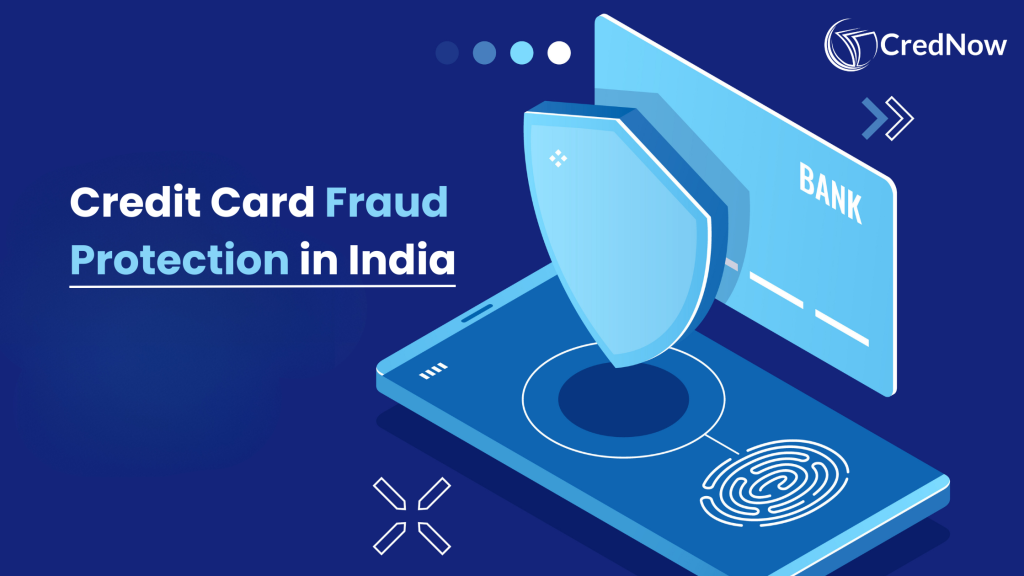In today’s digitally connected world, credit cards have become an essential tool for managing their finances for millions of Indians. They offer ease of transactions, financial flexibility, and the ability to make purchases both online and offline. However, with this convenience comes a rising threat – credit card fraud. India, like the rest of the world, is witnessing a surge in various types of credit card fraud, putting many at the risk of financial losses.
This blog aims to provide valuable insights into credit card fraud protection, covering who pays for credit card frauds, how to prevent credit card theft online, and how to keep your financial information safe from malicious attacks.
Understanding Credit Card Frauds in India
Credit card fraud occurs when unauthorised transactions are made using someone’s credit card information. Fraudsters employ several tactics to gain access to this data, including phishing, skimming, and hacking.
Common forms of credit card fraud in India include:
- Card Skimming – Fraudsters use devices to steal card details when swiped at ATMs or payment terminals.
- Phishing Scams – Fake emails, SMS, or websites trick individuals into sharing their card details.
- Card Not Present (CNP) Fraud – When someone makes online transactions using stolen card details without having the physical card.
- SIM Swap Fraud – Criminals manipulate telecom operators to get access to your SIM card and steal sensitive banking information.
Who Pays for Credit Card Frauds?
One question that often comes up is, “Who pays for credit card frauds?” In India, when a credit card fraud is reported promptly, the liability usually does not fall on the cardholder, provided they did not compromise their card details through negligence. In such cases, the issuing bank takes on the financial burden. The Reserve Bank of India (RBI) has clear guidelines that protect consumers from fraudulent transactions if reported within a reasonable time. However, if a delay in reporting is found, the liability may shift partially or fully to the cardholder.
Banks often investigate the fraud and reverse unauthorized charges, but this can take time. Hence, it’s crucial to always review your transaction history and notify your bank immediately of any suspicious activity.
How to Prevent Credit Card Theft Online
With online shopping and digital payments growing exponentially, protecting your credit card from theft online is more important than ever. Here’s how you can ensure safety while transacting digitally:
- Use Secure Websites Only: Ensure that the websites you are making payments on use “HTTPS” encryption. Look for the lock symbol in the address bar before entering your credit card details.
- Activate Two-Factor Authentication (2FA): Most Indian banks offer 2FA, where a transaction requires both your card details and a one-time password (OTP) sent to your registered mobile number. Always enable this feature for extra security.
- Avoid Public Wi-Fi for Transactions: Public Wi-Fi networks are prone to hacking. Never use these networks to carry out sensitive financial transactions. Instead, use your mobile data or a secure private connection.
- Use Virtual Cards: Some Indian banks provide virtual credit cards for online transactions. These cards generate a temporary card number that you can use instead of your actual credit card, adding an extra layer of protection.
- Regularly Monitor Your Statements: Check your credit card statements regularly for any unauthorized transactions. The quicker you detect fraud, the easier it will be to limit your financial liability.
- Install Anti-Virus and Anti-Malware Software: Protect your computer and mobile devices by installing reliable anti-virus software. This helps block phishing attacks and malware designed to steal your credit card information.
Recommended Read: Buy now, pay later (BNPL) vs. Credit cards
Physical Credit Card Fraud Protection
While online fraud is a significant concern, credit card theft in the physical world is also prevalent. Here are some steps to protect yourself from offline fraud:
- Be Cautious at ATMs: Always cover the keypad while entering your PIN and inspect the card slot for skimming devices. Avoid using ATMs in poorly lit or deserted areas.
- Use Contactless Payments Where Possible: Contactless payments (via NFC) are generally more secure than swiping your card at terminals. Since the card doesn’t leave your hand, the chances of data theft are reduced.
- Never Share Your Card Details: Sharing your card number, expiry date, or CVV with anyone is dangerous. Always keep these details confidential.
- Report Lost or Stolen Cards Immediately: If you lose your credit card or suspect it’s stolen, contact your bank immediately to block the card and prevent unauthorized use.
What to do if you are a victim of credit card fraud
Despite your best efforts to protect yourself, there may be times when fraud still occurs. Here’s what you should do if you find yourself in such a situation:
- Notify Your Bank Immediately: As soon as you notice any unauthorized transactions, report them to your bank. Most banks have 24/7 customer service for reporting fraud.
- Block the Card: Request your bank to block the card immediately to prevent further misuse.
- File a Police Complaint: For significant fraudulent activity, it’s advisable to file a complaint with the local police. This is often required for the bank’s investigation process.
- Check Your Credit Report: Monitor your credit report for any irregularities or new credit lines opened in your name. Fraudsters may use stolen information to open new accounts.
Staying Informed and Proactive
Credit card fraud protection isn’t a one-time action; it requires ongoing vigilance. Banks and financial institutions in India are constantly updating their security protocols to prevent fraud, but it’s crucial for cardholders to be proactive as well. Staying informed about the latest scams and security threats, practicing safe online habits, and reporting suspicious activities can significantly reduce your risk of falling victim to credit card fraud.
Remember, when it comes to credit card frauds in India, timely action is critical. While banks do bear much of the responsibility in cases of fraud, as a cardholder, you are responsible for ensuring your card is secure and any suspicious activity is promptly reported.
FAQs
1. Who pays for credit card frauds in India?
In most cases, if you report fraud promptly, your bank will cover the fraudulent charges. However, if the bank finds you were negligent with your card details, you may be held partially or fully responsible.
2. How can I prevent credit card theft online?
Always use secure websites (HTTPS), enable two-factor authentication, avoid public Wi-Fi for transactions, and regularly monitor your card statements for suspicious activity.
3. What should I do if my credit card is stolen?
Report the theft to your bank immediately and request them to block the card. Follow this by filing a police report for additional safety.
4. Is using a virtual credit card safer for online shopping?
Yes, virtual credit cards add an extra layer of security as they generate temporary card numbers for online transactions, minimizing the risk of theft.
5. What are some common types of credit card fraud in India?
Card skimming, phishing, card-not-present (CNP) fraud, and SIM swap fraud are some common types of credit card fraud experienced in India.




